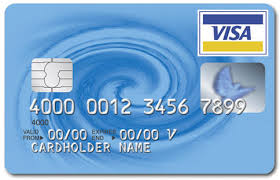editing & introductory note: Fotios Spyropoulos
PhD Candidate, Lawyer - Penologist - Criminologist,
Center for Penal and Criminological Research
"Plastic money" has replaced cash as the dominant method of payment in our everyday transactions. We are familiar, therefore, with the use of credit cards, but how well do we know to protect ourselves from credit card fraud?
In this issue’s "vivere impericolosamente", after an introductory analysis of how Greek criminal law theory addresses the issue of credit cards, we follow with...
Tips and advice concerning the use of credit cards
In Greece, the subject of credit card transactions is governed by Ministerial Decree

Z1-178/2001 that harmonizes the provisions of Recommendation 97/489 in Greek legislation. In Europe there also applies the European Directive 1997/7/EC and European Directives 1987/102 and 1990/88 which regulate issues related to consumer credit. Two examples from Greek law on issues of payment through credit cards are decisions by the Athens Court of Appeal (2319/1999) and the Supreme Court of Greece (589/2001). One of the regular hazards of daily life is the theft of our credit card. What happens then?! What exactly has been stolen? Merely the credit card itself, or all the money in our credit balance?
The Supreme Court Decision No. 2056/2003 established the procedure for dealing criminally with credit card theft: the Greek Supreme Court clarifies that the removal of the credit card constitutes simple theft, and not theft of a worthless item. Nonetheless, under ruling No. 196/1999 of the Council of Kastorias’ Magistrate’s Court, the removal of a credit card was marked as worthless crime (an improvement from the theft of high-value object, as the card was characterized in the initial criminal proceedings), on the grounds that it "does not incorporate the value of accounts which represent but a proof of existence of the possibility of withdrawing money from them. Furthermore, in the prosecution’s proposal to the Board it is pointed out that "the value of the card is worthless as the value of paper. This view favoring worthless value for the stolen card is confirmed by Decision No. 127/2004 of the Supreme Court. In conclusion, as we can see the Supreme Court has issued two diametrically opposed decisions regarding the addressing the issue, in just one year (Supreme Court of Greece 2056/2003 and 127/2004).
In Greek theory, Milonopoulos [1] and Beckas [2] support the notion that the card is "something worthless" under the meaning of Article 377 1st paragraph. Conversely, Vassilaki [3] and Manoledakis [4] categorize credit card theft as an indiscriminate crime. Vassilaki argues that, according to the "unifying theory” (Vereinigungstheorie), the magnetic tape contains the economic value of money that can be withdrawn from the ATM, and therefore its theft extends "through the card, to the money that is withdrawn and which the offender has appropriated.”
In addition, the Supreme Court examined the highly important question of the serial theft in relation to the offences committed by its subsequent exploitation. Under Supreme Court of Greece 127/2004 it was deemed that "the theft of credit card, as a worthless offence, does not cover by the subsequent fraud, since the components of the two crimes are different.” This makes it a truly serial offence. On a theoretical level, Milonopoulos argues that the unauthorised withdrawal of cash constitutes a computer crime, an offence that certainly corresponds with the theft of the card (theft of a worthless item). Manoledakis, on the other hand, argues that "it is merely the theft of an automated transaction card belonging to owner, which is then used for misappropriation of the amount subsequently withdrawn by the offender. This is considered a serial crime if with the theft of the card the offender makes several withdrawals.”
Tips and advice concerning the use of credit cards
• If you make purchases using credit cards, it is good practice to keep a clear photocopy of the cards, and the phone number of the credit institution which issued them, in case of theft or loss. Collect the following information for each card in your possession:
a) the name of the card
b) the number of credit account
c) the telephone number for reporting lost or stolen cards.
 • Never give out any bank card details, especially your password (PIN).
• Never give out any bank card details, especially your password (PIN).
• Further responsibilities of credit card holders:
a) Carefully read before signing any receipts issued using your card.
b) Keep receipts from purchases you make and compare them with the charges that are applied to your account.
c) Keep receipts of your purchases until you have repaid them.
d) Do not leave your cards exposed, either in home, office, in the car, etc.
e) Do not keep your credit cards in a wallet containing cash and other important documents (passport, identity card, driving license, etc.). In this way you avoid the risk of losing everything together, and providing opportunity for others to use them for purchases, etc.
• If you buy something with your credit card, make sure you receive the copy of the receipt, even if the transaction is cancelled. This will prevent someone else from obtaining your credit card number.
• Photocopy the front and back of credit cards and file the photocopies in a safe place. If your card is stolen, you will have a copy of these as a reference in order to cancel the cards and submit a report to the police.
• Do not accept a high credit limit, or unnecessarily increase the limit on cards used in transactions via telephone or PC;
• Notify the bank immediately if your bank book or credit cards are stolen. Check you have all your bank cards at regular intervals, especially whilst traveling, etc.
Bibliography - Journals
I. Vassilaki, “The fight against computer crime”; Sakkoulas Publications, Athens; 1983 – in Greek
Christos Milonopoulos, “Criminal Law - Special Part”; Sakkoulas Publications, Athens; 2001
George Nouskalis, “Computer (PC) Fraud: The Past and Future of the Article 386Α of Greek Penal Code, especially in light of developments in the Council of Europe and the European Union” in Greek Journal Piniki Dikeosini (Criminal Justice) 2/2003; page 178 – in Greek
* The "practical" tips are excerpts from the practical handbook by professor Nestor Courakis: "Feeling safe in a society of active citizens," Sakkoulas Publications, Athens; 2006 – in Greek.
TRANSLATOR΄S FOOTNOTES:
[1] Christos Mylonopoulos: Professor of Law at the University of Athens. During the years 1992 – 1995 he taught international and European criminal law at the University of Munich as visiting Professor following an invitation from Professor Claus Roxin, whilst in 2008 he organized in conjunction with Professor U. Neumann an advanced class on criminal law and general theory of justice at the University of Frankfurt. His works have been translated into German, English, and Japanese. He administered the course in international criminal law at the Athens University Law School and co-wrote the related guidelines.
[2] Ioannis Beckas: Associate Professor of Law at the University of Thrace
[3] Irene Vassilaki: Lawyer - member of the Athens΄ Bar Association, Lecturer at the Law School of the University of Göttingen, where she teaches Criminal Law and New Technology Law
[4] Ioannis Manoledakis: Professor Emeritus at the Law School of the Aristotelian University of Thessaloniki, Academic director of the journal of the “Armenoupolos” Thessalonica’s Legal Bar Association (1974-1988). Founder and director of the journal for criminal justice and structural liberties entitled “Yperaspisi” (Defence) (1991-2000). In 2003 was voted into the Academy of Athens.





